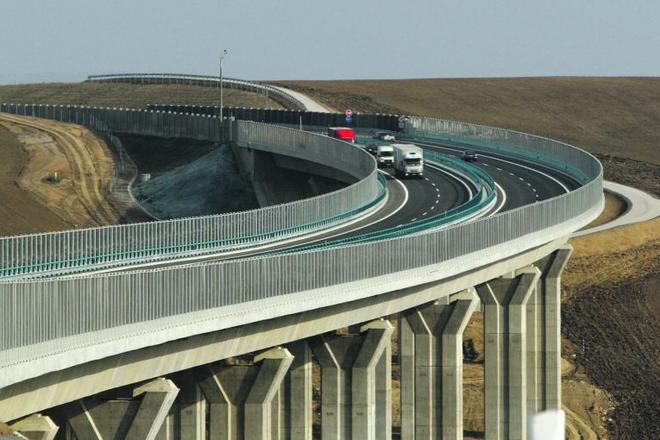BRIBES to grease the right wheels when granting state orders or subsidies to businesses stand at 13 percent of the worth of a given order on average: so assume businesspeople active in Slovakia, according to a recent survey carried out by the Business Alliance of Slovakia (PAS). The survey is being released at a time when a draft revision to the law on public procurement that Interior Minister Robert Kaliňák pitched for interdepartmental review is fuelling debate and harvesting criticism from political ethics watchdogs as well as some members of the government of Robert Fico, including Economy Minister Tomáš Malatinský.
The deepest thorn in the side of the revision’s critics is a special regime that Kaliňák’s ministry proposes for large procurement deals, or so-called strategic orders. The proposal renders the authority to make decisions on deals that have societal significance and exceed €10 million to the government and a subordinate selection committee, which could also involve representatives of businesses.
“The wording of the proposal makes possible corruption and cronyism without any concealment, for example, with the fact that the public procurer defines the scale and circle of bidders, which is at odds with the declared goal of the revision,” the Economy Ministry wrote in its response to the draft, as quoted by TASR newswire.
Kaliňák originally pitched his draft as a tool for effective and transparent procurement processes in which all bidders receive equal treatment and the state gets the best deal for the best price. The Interior Ministry now says it will thoroughly study the thousand-plus comments submitted to the draft and will rework the amendment.
Kaliňák’s colleague, Agriculture Minister Ľubomír Jahnátek, has commented on the draft, saying that “it is a proceeding, which could be marked as non-transparent and could cause problems with drawing EU funding”.
Labour Minister Ján Richter and Transport Minister Ján Počiatek also had issues with the draft. The department of justice has sharply criticised the draft, taking issue with shortening the time frame for objections to tenders from 14 to 10 days. The ministry considers it a violation of governmental rules and is calling for the withdrawal of the draft, according to the SITA newswire.
Yet Kaliňák said on September 17 that he wishes for his draft to receive wide and general support.
“For us it is important that the law is of good quality; everybody is happy with it so that it can function and bring what the economy needs very much: increasing revenues from all the possible resources that we have at our disposal, beginning with the EU up to the state budget,” Kaliňák responded as quoted by TASR.
The minister was not able to detail how the controversial provision on so-called strategic orders would be modified. The ministry will now delay the application of the law, which should have become valid as of next year.
Lucia Žitňanská, a former justice minister, and Miroslav Beblavý, both deputies for the opposition Slovak Democratic and Christian Union (SDKÚ) called on Kaliňák on September 17 to withdraw his blueprint of the revision to the procurement law from the cabinet. They argue that the revision is designed in a way that would make Kaliňák the most powerful man in government.
“I think several ministers have realised that if this law goes through and if after a couple of years the European Commission will scratch tens or even hundreds of millions of euros from the operational programmes, then no one will consider Kaliňák, as the author of the law, responsible, but the responsibility will rest with them,” Beblavý said as quoted by SITA, adding that several ministers have followed their instincts for self-preservation.
The disputed draft
The draft revision, which was submitted for accelerated interdepartmental review on September 4, would substantially extend the duty to publish procurement-related data and remove the option to carry out procurement through closed negotiations. Procurement of goods up to €100,000 should be carried out through electronic auctions, with the state envisioning an electronic market place. Contract amendments that can change a deal’s price would also be phased out, while in the case of repeated assignment of state deals the principle of the lower price would be applied, according to an official statement from the ministry.
The political ethics watchdogs Fair-Play Alliance and Transparency International Slovensko have been critical of some of its provisions, specifically the special regime for strategic procurements.
The survey
A recent PAS survey illustrates the need for the government to address the lack of transparency in public procurements.
As many as 42 percent of the anonymously surveyed 452 businesspeople assume that bribes range between 10 and 20 percent. For example 13 percent of those surveyed said they thought that bribes range between 20 to 50 percent of the value of state orders. Businesses tend to think that the probability of occurrence of corruption is higher when more sophisticated products adjusted to the needs of procurers are being procured, since the space for the inclusion of extra payments is much wider, the PAS survey suggests.
Many businesses are deterred from participating in public procurement by the general conviction that in public procurement, firms with the best contacts to public officials are preferred over better quality candidates, the PAS suggests.


 Highways in Slovakia could become the subject of strategic orders. (source: SME)
Highways in Slovakia could become the subject of strategic orders. (source: SME)